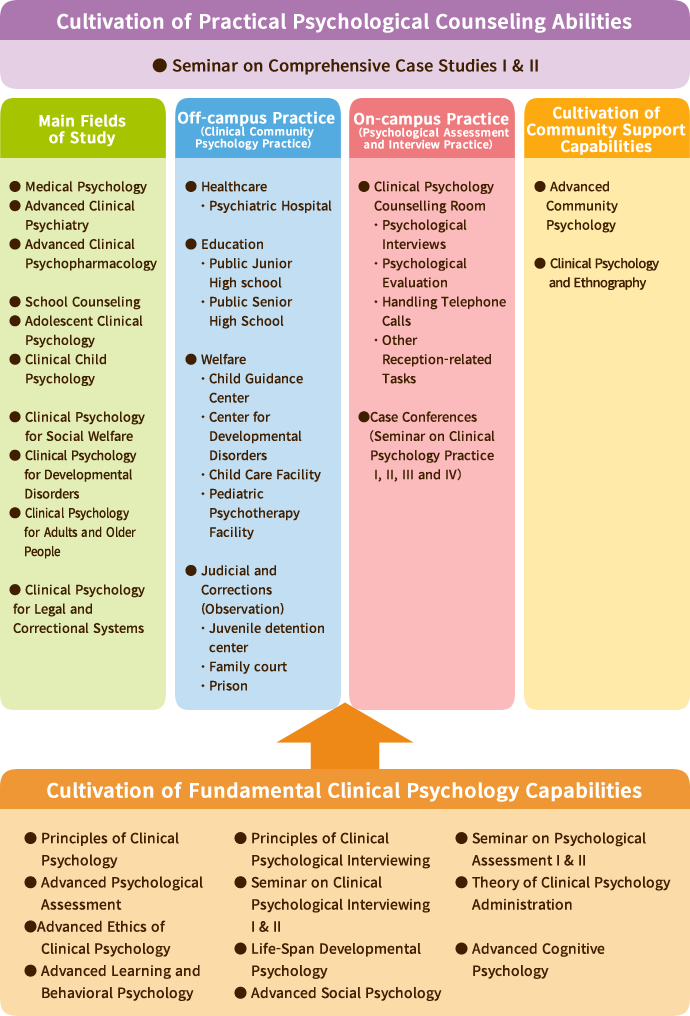The curriculum at the Graduate School of Clinical Psychology has the following special features, which are intended to cultivate talented individuals who have a high level of specialist knowledge and outstanding skills, as well as real practical abilities. The curriculum has been systematically designed to cultivate clinical psychologists who are able to meet the needs of the local community.
